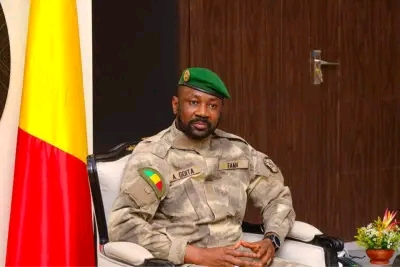By Ollus Ndomu
In a decision that has raised concerns and disappointment among civil society groups and the opposition, Mali’s military junta has once again postponed the scheduled presidential election, citing “technical reasons.”
The decision has further fueled speculation about the junta’s commitment to restoring democratic rule in the West African nation.
Originally slated for February, the election delay is attributed to a series of significant changes the junta claims are necessary for a fair and transparent electoral process. These changes include the adoption of a new constitution and a thorough review of electoral laws.
Although the junta has assured that a new election date will be announced, it has also decided to hold parliamentary polls separately.
The postponement comes amidst a backdrop of ongoing political instability in Mali, which has been grappling with coups and political unrest over the past decade.
The military junta took power in August 2022, following the ousting of President Ibrahim Boubacar Keïta, who had faced widespread protests over alleged corruption and mismanagement.
Civil society groups and the political opposition had viewed the upcoming presidential election as a crucial step towards restoring civilian governance and stability. However, this latest delay has left many skeptical of the junta’s intentions.
Malian civil society activist Aminata Doumbia expressed her disappointment, stating, “The postponement of the election raises concerns about the junta’s commitment to a swift return to democratic rule. We had hoped that this election would mark the beginning of a new era for Mali.”
The junta’s argument for the delay centers on the need for constitutional reforms and changes to electoral laws to ensure a more transparent and inclusive electoral process.
Meanwhile, critics argue that these technical reasons may be a pretext for the junta to prolong its hold on power.
The international community, including the United Nations and regional bodies like the Economic Community of West African States (ECOWAS), has been closely monitoring the situation in Mali.
They have consistently called for a swift return to civilian rule and the holding of free and fair elections.
The delayed presidential election and the separation of parliamentary polls have raised concerns about potential power imbalances and the impact on the country’s democratic transition.
Mali continues to grapple with security challenges, including a persistent insurgency in the north, which has led to significant humanitarian and security concerns.
As Mali awaits the announcement of a new election date, the uncertainty surrounding the country’s political future persists.


